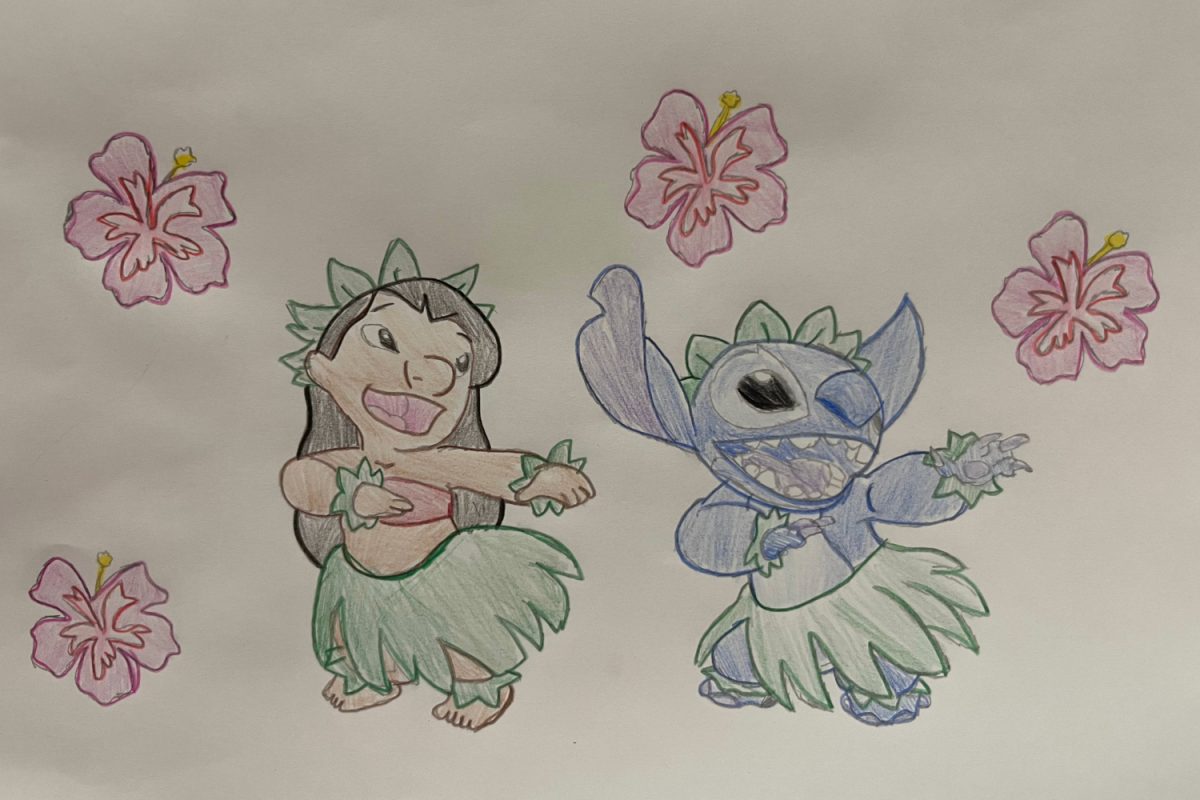Disney continues to reshape their animated classics, releasing their upcoming “Lilo & Stitch” live-action movie this May and bringing representation to Asian Americans and Pacific Islanders (AAPI).
The trailer was an immediate hit and accumulated 173.1 million views in just 24 hours of its release, according to The Walt Disney Company. This makes it Disney’s second most-viewed live-action trailer after the 2019 teaser for “The Lion King.”
For many, “Lilo and Stitch” hold a special place in their hearts representing Pacific Islander culture, especially that from Hawaii. The film’s casting of key characters like Nani, who is being played by Sydney Agudong, is causing both excitement and debate.
Asians on the big screen has been a long-time debate for many people, and “Lilo & Stitch” is the long-awaited opportunity to see more AAPI actors on the big screen. For many years, Pacific Islander and Hawaiian cultures have been underrepresented in mainstream media, and this movie is a good opportunity to break that cycle.
“I think it’s great to have someone who was born and raised in Hawaii even if she is not of Pacific Islander descent,” said Inia Croshal, a Hawaiian sophomore at Design Tech High School.
Many in the Pacific Islander community, such as Croshal, believe that any and all representation matters, even if it is not perfect.
“I think that Pacific Islanders are represented so little in media that even if she doesn’t look Hawaiian it’s the fact that they cast a Pacific Islander and not a white person,” said U’iwailani Lobato, a Pacific Islander student at Carlmont.
The inclusion of actors who are not necessarily of Pacific Islander descent but who were born and raised in Hawaii adds to the diversity, broadening the cultural spectrum in media. While Lilo & Stitch focuses on Hawaiian traditions, the film is a way to broaden the representation of all Pacific Islanders, not only Hawaiians.
“’Lilo & Stitch’ and ‘Moana’ are the only movies that represent Pacific Islanders. Not just Disney movies, but in general, there are no other movies that really give us a name,” said Karina Abuel, a sophomore at Carlmont.
This highlights the lack of media that not only represents but accurately portrays the diverse cultures within the Pacific Islander community.
“Don’t get me wrong, I’m so happy Hawaiian culture is being represented, but there are so many other Pacific Islander cultures,” Abuel said.
The film’s potential to amplify and give voices to Pacific Islanders is a large step towards more inclusive media. For younger audiences to see their culture represented on screen is a great form of validation and pride, with the animated Lilo & Stitch being a rare gem, now with a live-action to further represent Pacific Islander culture to a new level.
One large debate surrounding the upcoming live-action is the casting, specifically the role of Nani, Lilo’s older sister. While many are excited to see someone from Hawaii playing the role, others have raised concerns about the actor’s background.
While Sydney Agudong was born and raised on the island of Kaua’i, she is not of indigenous Hawaiian descent. This has many wondering if someone who is Hawaiian but is not native nor looks Hawaiian truly and properly represents Pacific Islanders in media.
While some believe that there should have been a different casting for Nani, others, such as Lobato, believe that she is a good choice.
“She’s born and raised on Kaua’i. Even if she’s not blood Hawaiian, she’s still part of the culture. Growing up there, you learn so much about Hawaiian culture, and there’s still a level of connection to the land and people that comes with living in Hawaii,” Lobato said.
The conflict over Nani’s casting highlights the broader debates of cultural representation in media. While there is a desire for authenticity among those who know the culture and have experienced it firsthand, there is also the desire for someone who looks the part. While Agudong has the experience of the culture, she does not look the part, making many unsure about her casting.
Ultimately, many believe that any representation is a positive step forward. At the same time, there is a want for greater attention to details, and nuances, ensuring all Pacific Islander communities are represented in media. The success of this live-action remake could set the tone for future films featuring Pacific Islander characters and culture.












